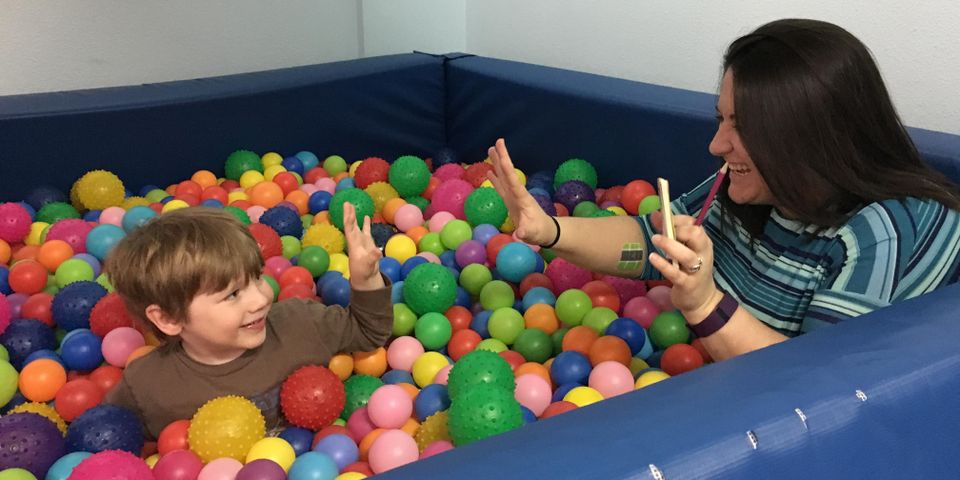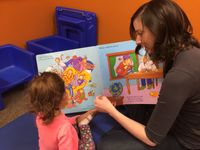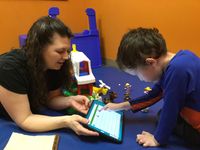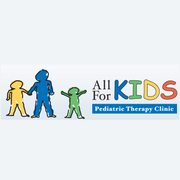Pediatric Speech Therapy

Speech and language therapy in the pediatric setting is a skilled therapy service that helps young children in their development of speech, language, cognitive, and feeding abilities. The speech-language pathologists at All for Kids Pediatric Therapy Clinic serve children with a wide variety of needs in Anchorage, AK.
Below are areas a speech-language pathologist might address in therapy:
- Articulation: Articulation is the ability to use your tongue and mouth to pronounce certain sounds. A child’s poor articulation can impact how well people understand them when they speak. Whether someone has a lisp or difficulty with many sounds, speech therapy can help them master the movements needed for clear delivery.
- Fluency: While everyone experiences hiccups in speech, some may have additional challenges, such as those with stuttering. Speech therapy can help to smooth out the pace and quality of a child’s speech and can help to reduce anxiety related to communication with others.
- Receptive Language: Receptive language refers to what
 a child understands while listening. Speech therapy can help children learn vocabulary, follow directions, and understand questions or conversations.
a child understands while listening. Speech therapy can help children learn vocabulary, follow directions, and understand questions or conversations. - Expressive Language: This refers to how well a child can express themselves. Therapists assist with basic communication of wants and needs, teach children new words, help children expand the length and complexity of their language, correct grammatical errors, and help children tell narratives.
- Cognitive Development: Speech therapy can help develop skills in memory, problem-solving, inferencing, predicting, and sequencing.
- Pragmatic Language: This refers to verbal and non-verbal social language which includes using language for different purposes (e.g., greeting, informing, requesting, etc.), using and understanding non-verbal communication (e.g., body language, tone of voice, facial expression, etc.), and following rules for conversation (taking turns, staying on topic, facial expressions, eye contact, etc.).
- Reading and Writing: Speech therapy can help develop pre-literacy skills and provide intervention for dyslexia, reading comprehension, spelling, writing mechanics, and writing organization.
- Voice: SLPs can assist children with producing a clear voice and using healthy speaking/voicing behaviors.
- Augmentative/alternative Communication: This refers to
 use of alternative systems and technology to supplement or substitute for verbal expression, such as PECS, sign language, or dedicated computer systems.
use of alternative systems and technology to supplement or substitute for verbal expression, such as PECS, sign language, or dedicated computer systems. - Oral-Motor Skills and Feeding: Many SLPs have specific training to address use of oral structures (mouth, teeth, tongue, etc.) for speech and safe, efficient eating or assisting children with accepting a variety of nutritious foods with varying flavors, textures, temperatures, and chewing demands.
Contact the team at All for Kids Pediatric Therapy Clinic if you are having difficulty communicating with your child or otherwise worry they may need speech therapy. The staff at All For Kids helps children with all types of communication disorders by creating a personalized therapy plan. Contact them at (907) 345-0050 to schedule an appointment with a speech-language pathologist.
About the Business
Have a question? Ask the experts!
Send your question

